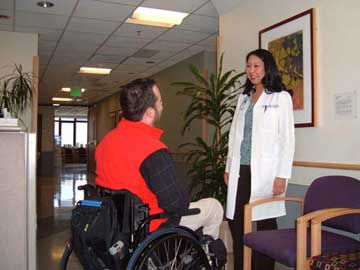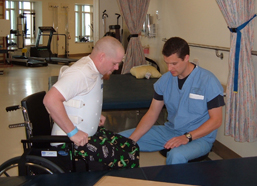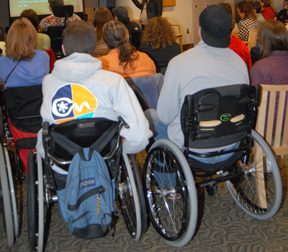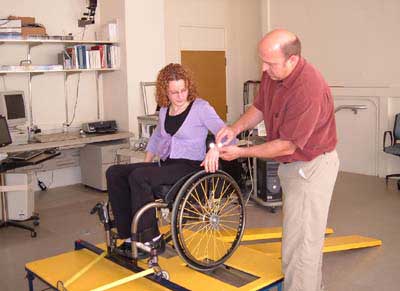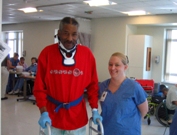Spinal Cord Injury Update
Winter 2007: Volume 16, Number 1
Module Project: How patients adapt to spinal cord injury.
In addition to the telephone intervention study and the depression study the NWRSCIS was selected to conduct a Module Project called "The natural history of major depression within one year of spinal cord injury" at multiple SCI Model System sites. Renamed "Adapt," this study is designed to address serious gaps in the scientific evidence about depression in persons with SCI. Unlike studies that involve testing a new treatment, the goals of "natural history" type studies such as this are to understand more about the occurrence and current diagnosis and treatment of a disease or medical condition, and to provide a foundation for conducting further research and improving the standard of care.
Depression is common in the SCI population and "significantly adds to the burden of disability associated with SCI," says Bombardier, who is co-leading the study with Jesse Fann, MD, MPH, associate professor of psychiatry and behavioral sciences. "Depression is associated with longer lengths of hospital stay and fewer functional improvements, less functional independence and mobility at discharge, and more pressure sores and urinary tract infections." However, very little research about depression has focused specifically on the SCI patient, resulting in gaps in what is known about the extent and nature of depression in SCI and whether the current treatment strategies are appropriate or even successful.
This study will address several key questions: What are the best ways to screen for and measure depression in this population? How can depression be distinguished from traumatic grief, and how do the two interact? What is the usual course of care currently provided to SCI patients with depression? What proportion of SCI patients recover from depression, either spontaneously or in response to treatment, and what is the course of recovery? What treatment methods are SCI patients likely to accept and use?
The study will be conducted at multiple sites (University of Washington, University of Michigan, and Mt. Sinai School of Medicine in New York) in order to ensure an adequate number of subjects and to learn about regional variations in current treatment of depression in SCI. Study participants will be recruited during inpatient rehabilitation at each research site. Those who agree to participate will be screened for depression periodically and followed at 3, 6, 9 and 12 months after SCI. Persons who are found to have depression will be treated by their respective clinicians.

